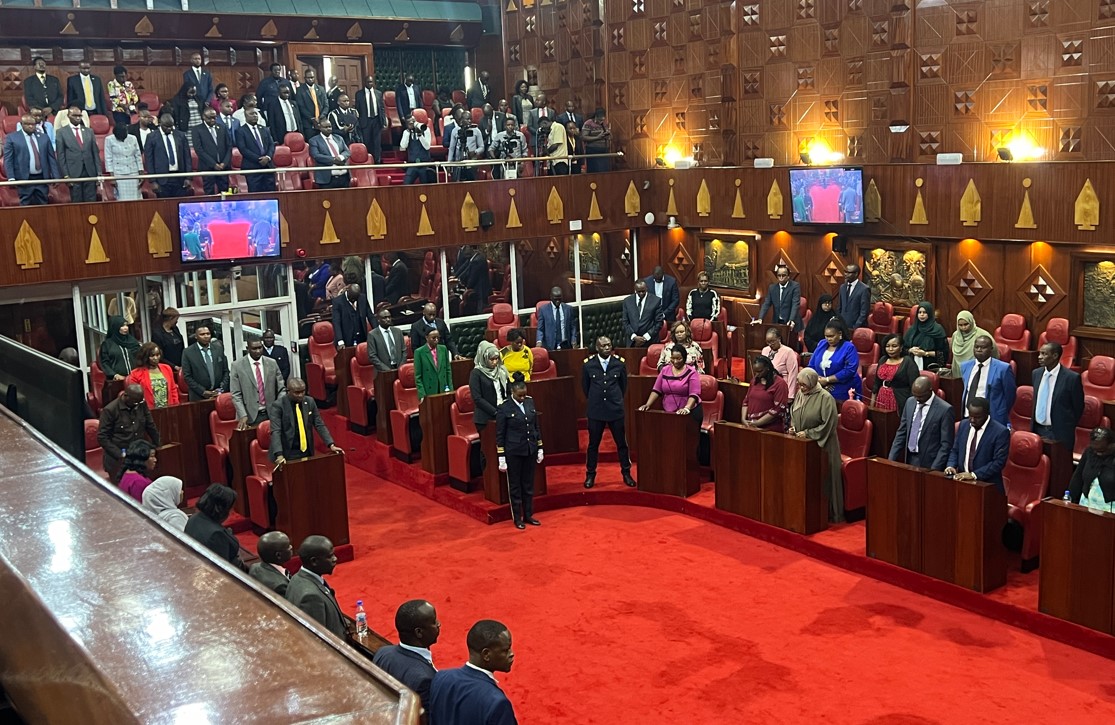Inside the appointment process of Kenya’s Chief Kadhi

The Chief Kadhi is the overall leader of the Kadhi’s Courts, which handle matters related to Islamic personal law such as marriage, divorce, and inheritance.
The passing of Kenya’s Chief Kadhi has triggered a clear legal and administrative process to appoint a new holder of the office, in line with the Constitution and the Kadhi’s Courts Act.
The responsibility of overseeing the transition lies with the Judicial Service Commission (JSC), which plays a central role in ensuring a smooth and lawful succession.
More To Read
- IG Kanja appeals for more resources to strengthen National Police Service
- CJ Martha Koome pushes back against criticism over parliamentary interference
- Supreme Court rules Chief Registrar has no powers to discipline, fire judges or magistrates
- CJ Koome roots for AJS to resolve long running land disputes in Mombasa
- Explainer: What is anticipatory bail and when should it be granted?
- DCJ Philomena Mwilu cleared of misconduct in Gachagua impeachment case
The Chief Kadhi is the overall leader of the Kadhi’s Courts, which handle matters related to Islamic personal law such as marriage, divorce, and inheritance. Once the seat falls vacant, the first step is for the JSC to declare the position officially vacant, thereby opening the path for recruitment.
In the meantime, the Commission may appoint the most senior Kadhi to act in the role temporarily, ensuring that the functions of the Kadhi’s Courts continue uninterrupted. This acting arrangement remains in place until a substantive officeholder is appointed.
Steps in the appointment process
Following the vacancy declaration, the JSC advertises the position publicly. According to procedure, a notice must be published in at least two national newspapers and posted on the JSC’s official platforms.
The notice sets out the eligibility criteria and deadline for submitting applications.
Candidates must be Kenyan citizens, followers of the Islamic faith, and professionally trained in Islamic law.
They must also be of good moral standing within the Muslim community. The required training should cover core aspects of Islamic personal law, particularly marriage, divorce, and succession.
Once applications are received, the JSC reviews them and proceeds to shortlist qualified candidates.
Those shortlisted are then invited for interviews that are open to the public.
During this stage, the candidates are evaluated on their understanding of Islamic law, integrity, and ability to lead the Kadhi’s Courts.
While the views of the Muslim community may be sought during the process, the final decision is made solely by the JSC, which is mandated by law to ensure impartiality and merit-based appointment.
Gazettement and appointing
After the interviews, the Commission selects the most suitable candidate, whose name is then published in the Kenya Gazette.
The gazettement formalises the appointment and clears the way for swearing-in.
Upon taking office, the new Chief Kadhi assumes full responsibility for leading the Kadhi’s Courts across the country.
The appointee is expected to provide direction to all other kadhis and ensure that Islamic personal law is applied uniformly and in accordance with the Constitution.
This structured and transparent process helps maintain public trust, upholds religious and legal standards, and ensures continuity in service delivery for Muslims seeking legal redress under Islamic law.
Top Stories Today














































